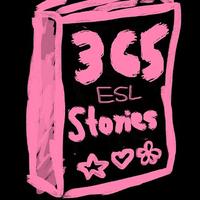9. Passover – A Jewish Holiday of Remembering
9. عيد الفصح – عطلة يهودية للذكرى
9. La Pascua judía: la fiesta del recuerdo
9. Pascha - żydowskie święto pamięci
9. Páscoa – Um feriado judaico de recordação
9. Hamursuz Bayramı - Bir Yahudi Hatırlama Bayramı
9.逾越节--犹太人的缅怀节日
Passover is a Jewish holiday that remembers and celebrates their liberation from ancient Egyptian slavery as described in the Old Testament of the Bible.
عيد الفصح هو عيد يهودي يحتفل بتحررهم من العبودية المصرية القديمة كما هو موضح في العهد القديم من الكتاب المقدس.
A Páscoa é um feriado judaico que lembra e celebra sua libertação da antiga escravidão egípcia, conforme descrito no Antigo Testamento da Bíblia.
逾越节是犹太人的节日,是为了纪念和庆祝他们从《圣经-旧约》中描述的古埃及奴役中解放出来。
It is traditionally celebrated in the spring and lasts about a week.
يتم الاحتفال به تقليديًا في الربيع ويستمر لمدة أسبوع تقريبًا.
É tradicionalmente comemorado na primavera e dura cerca de uma semana.
传统庆祝活动在春季举行,持续一周左右。
According to the story in the Bible, God punished ancient Egypt with 10 plagues.
وفقا للقصة الواردة في الكتاب المقدس، عاقب الله مصر القديمة بعشر ضربات.
De acordo com a história da Bíblia, Deus puniu o antigo Egito com 10 pragas.
根据《圣经》中的故事,上帝用十灾惩罚了古埃及。
The last plague killed Egyptian first-born males.
الطاعون الأخير قتل الذكور المصريين البكر.
A última praga matou os primogênitos egípcios.
最后一场瘟疫杀死了埃及人的长子。
Jewish people were told to mark their doors with lamb’s blood so that God would know to pass over these houses and not kill any first born males inside.
طُلب من اليهود أن يضعوا علامات على أبوابهم بدم الحمل حتى يعلم الله أن يمر فوق هذه المنازل ولا يقتل أي بكر من الذكور بداخلها.
O povo judeu foi instruído a marcar suas portas com sangue de cordeiro para que Deus soubesse passar por cima dessas casas e não matar nenhum primogênito do sexo masculino dentro delas.
犹太人被告知要用羔羊的血在门上做记号,这样上帝就会知道要经过这些房子,不会杀死里面任何头生的男性。
This is where the name of the holiday, Passover, comes from.
ومن هنا جاء اسم العيد "عيد الفصح".
这就是逾越节名称的由来。
After this last plague the Egyptian king, known as the Pharaoh, agreed to release the ancient Jews from bondage.
وبعد هذه الضربة الأخيرة، وافق الملك المصري، المعروف بالفرعون، على تحرير اليهود القدماء من العبودية.
Após esta última praga, o rei egípcio, conhecido como Faraó, concordou em libertar os antigos judeus da escravidão.
在这最后一场瘟疫之后,埃及国王(即法老)同意释放被奴役的古犹太人。
The Bible story also says that the Jewish people left their homes in such a rush after they were freed that they didn’t have time to wait for the bread to rise.
تقول قصة الكتاب المقدس أيضًا أن الشعب اليهودي تركوا منازلهم في عجلة من أمرهم بعد إطلاق سراحهم لدرجة أنه لم يكن لديهم الوقت لانتظار ارتفاع الخبز.
A história bíblica também diz que o povo judeu saiu de casa com tanta pressa depois de ser libertado que não teve tempo de esperar o pão crescer.
圣经》故事还说,犹太人在获得自由后匆忙离家,没有时间等待面包升起。
This is why at the commemorative Passover meal, Jewish people eat matzo, bread without yeast, also known as unleavened bread.
ولهذا السبب، في وجبة عيد الفصح التذكارية، يأكل الشعب اليهودي الماتزو، وهو خبز بدون خميرة، والمعروف أيضًا باسم الخبز الفطير.
É por isso que na refeição comemorativa da Páscoa, o povo judeu come matzo, pão sem fermento, também conhecido como pão ázimo.
这就是为什么犹太人在逾越节的纪念餐上要吃马佐(一种不含酵母的面包,又称无酵面包)。
The matzo and other foods are eaten at a special meal called a seder.
马佐和其他食物是在称为 "降神节 "的特殊餐会上食用的。
There are very specific rituals that happen at the Seder meal.
Existem rituais muito específicos que acontecem na refeição do Seder.
降生餐有非常特别的仪式。
These rituals are all in a book called the Haggadah.
Esses rituais estão todos em um livro chamado Hagadá.
这些仪式都记载在一本名为《哈加达》的书中。
Inside the Haggadah is also the story of the Jewish exodus from Egypt.
Dentro da Hagadá também está a história do êxodo judaico do Egito.
哈加达中还讲述了犹太人出埃及的故事。
During the seder meal parts of the Haggadah are read aloud.
Durante a refeição do seder, partes da Hagadá são lidas em voz alta.
进餐时,要大声朗读 "哈加达 "的部分内容。
The first part of the meal is a blessing over wine.
A primeira parte da refeição é uma bênção sobre o vinho.
用餐的第一部分是祝酒。
The second part of the meal is the washing of hands.
A segunda parte da refeição é a lavagem das mãos.
用餐的第二部分是洗手。
The third part of the meal is when someone dips some sort of vegetable in salt water and then eats the vegetable.
第三部分是用盐水蘸蔬菜吃。
The vegetable symbolizes the humble origins of the Jewish people.
O vegetal simboliza as origens humildes do povo judeu.
这种蔬菜象征着犹太民族卑微的起源。
The water symbolizes their tears.
A água simboliza suas lágrimas.
水象征着他们的眼泪。
The fourth part of the meal is when three pieces of matzo are broken.
A quarta parte da refeição é quando três pedaços de pão ázimo são quebrados.
第四部分是掰三块马苏。

